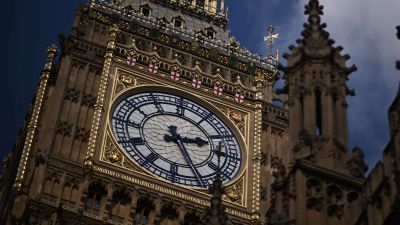Legal challenge to Legacy Act to be heard over five days in November

A legal challenge to the Government’s new laws to deal with the legacy of the Northern Ireland Troubles will be heard over five days in November, a High Court judge has directed.
Delivering his case management directions, Mr Justice Colton said the court has now received 20 applications for judicial review from Troubles victims challenging various aspects of the legislation.
The judge said he has identified a lead case to be examined by the court.
The Northern Ireland Troubles (Legacy and Reconciliation) Act received royal assent last month despite widespread opposition from political parties, victims’ organisations in Northern Ireland and the Irish government.
Aspects of the laws include a limited form of immunity from prosecution for Troubles-related offences to those who co-operate with the new Independent Commission for Reconciliation and Information Recovery (ICRIR).
The ICRIR will be headed by former lord chief justice Sir Declan Morgan.
The new Act will also halt future civil cases and inquests.
In his directions, the judge said the court “recognises the real and genuine concern of all the applicants who have issued proceedings”.
He added: “The court’s objective is to ensure that the legal issues that arise in relation to the Act are heard and determined as expeditiously as is reasonably possible.
“It is recognised that multiple issues are raised by the individual applications.
“Equally, it is clear that there is a huge degree of overlap in respect of the applications.
“It is simply not practical, nor fair, to agree to hear all 20 applications, something which is accepted by all the parties.”
The judge said challenges to the Act are focussed on a number of areas, including the establishment of the ICRIR, the cessation of police investigations, the cessation of inquests and civil proceedings and the potential immunity from prosecution.
However, he said the court’s primary focus will be the argument that sections of the Act are incompatible with the European Convention on Human Rights.
Mr Justice Colton directed that the lead case will be a joint submission brought by Martina Dillon, John McEvoy and Linda McManus.
He also granted leave for the cases brought by Patrick Fitzsimons, Teresa Jordan and Gemma Gilvary, as their applications raised issues not covered by the lead case.
The judge also granted an application from the Wave Trauma Centre, a cross-community victims’ group, to provide written submissions in the case.
The judge directed that the hearing will begin on November 20 and is set to last for five days.
Want a quick and expert briefing on the biggest news stories? Listen to our latest podcasts to find out What You Need To Know.